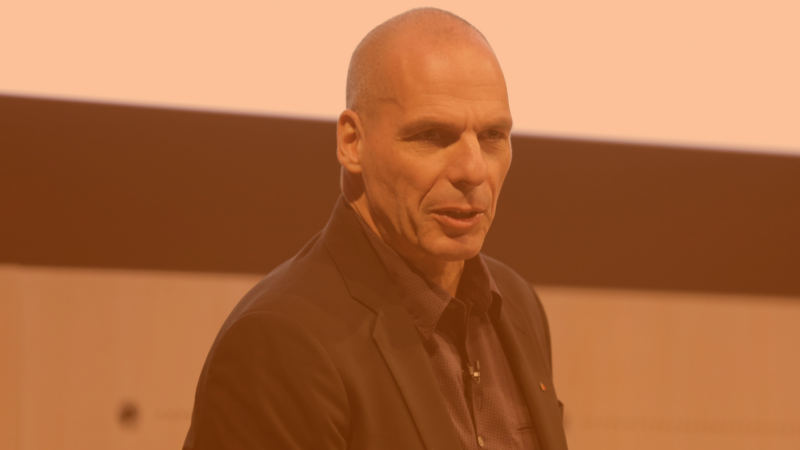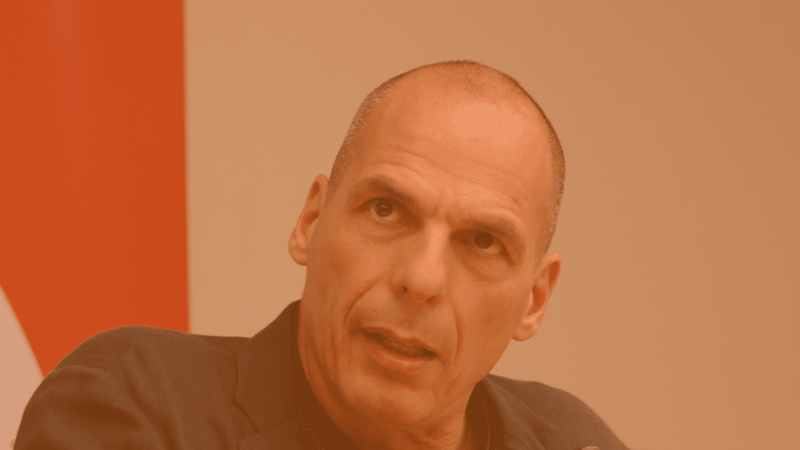‘Seemingly no understanding of the misery that this was going to cause Greek people’
In the late 90s my band traveled to France to play in a jazz festival. I remember that we had a bit of difficulty paying for our coffee in the airport. For some reason, this started a debate on the merits of the single currency. Britain had been part of the Exchange Rate Mechanism up until 1992 and was toying with the idea of joining the Euro. The vast majority of us thought at the time that joining the single currency was a good thing.
“What was the most difficult: the language or the money difference?” asked one of the band mates. While trying to buy a morning coffee the currency issue had indeed become more problematic than the language barrier. The general feeling among the band members, including myself, was that having separate currencies was foolish, and I despised the ‘Little Englander’ mentality that was so prevalent.
The issue of the single currency had racked the Conservative Party — their leader Margaret Thatcher eventually withdrew for this reason. This had started the ascent of the UKIP party; their party logo is still the £ sign to signify this issue. As we know, the euroscepticism that started with the single currency gradually led to the Brexit referendum decades later.
Looking back I think that I was a bit naive. In principle, I have nothing against a single currency. Unlike UKIP and the eurosceptics, I don’t believe that it is a problem for national identity. Ireland is not any less Irish for being part of the Euro and Italy is not more German. A currency doesn’t define a national culture.
Diversity of culture is one of the wonderful things about Europe and should always be maintained and promoted. The problem with a single European currency is that national governments don’t have the tools necessary to cope with a financial crisis. If you can’t change the interest rates you can’t deal with even a minor crisis. For a single currency to work, you also need a far more integrated and unified economy with distribution to poorer countries and regions. Without that, a single currency is a recipe for disaster. In comparison, the USA managed to handle their banking crisis far better than the Eurozone.
Listening to the Euroleaks, it becomes clear how bad of an idea the single currency is without the political institutions to run it. The Eurogroup doesn’t have the capacity to look after weaker countries. You now have a situation in which Germany, as the strongest economy, dominates its proceedings. A few times the Eurogroup members refer to their own electorates — for example, during the 24 February Eurogroup Teleconference.A representative asks Yanis Varoufakis to help keep the Greek public opinion ‘calm’ and avoid ‘pushing signals from Greece’; stating “we have electorates too in our countries.”
Decisions that are being taken by the Eurogroup do not consider the Eurozone as a whole, showcasing the fissures present in the European project. Instead politicians act on behalf of the interest of their own nations and engage in a ‘race to the bottom’ — see 27 June – Eurogroup in Brussels. Maria Luís Albuquerque states for example that she ‘fully respects the Greek decision to make a referendum’, but that the decision of the Greek people may not actually be taken into consideration by the Eurogroup: “bear in mind that whatever comes out of the decision of one country cannot presume decisions from all the other 18.”
The complete banality of such discussions is another issue made evident by the Euroleaks tapes. For example, a discussion about whether the last line of a letter is political or not takes up a huge amount of time — as can be seen in the 30 June Eurogroup Teleconference. Alexander Stubb states: “I agree, this is a political letter, not a technical letter, and we can discuss further, when we get a second letter, and I would also propose to do that at some stage, uh, tomorrow.”
A discussion around whether the Syriza government will implement the program keenly enough given their opposition to it lasts for another meeting. This is at a time when the Greek banks were shutting down, but there is seemingly no understanding of the misery that this was going to cause Greek people. No one seemed to think that it was possible for the Greek people to actually vote against the program. Apparently, that included the Syriza government who had called the referendum.
The Eurogroup response is as ineffective in addressing the coronavirus crisis and its impending recession as it has been in the previous crisis. We really need to think of how to approach political decision making differently. DiEM25 has been a proponent of the implementation of participatory democracy in Europe through the implementation of people’s assemblies, for example.
Take a look at the Euroleaks yourself! Have a look at our brief explainers, or listen to the YouTube audio as you follow the transcripts on the website. Feel free to tweet us your thoughts.
Do you want to be informed of DiEM25's actions? Sign up here










